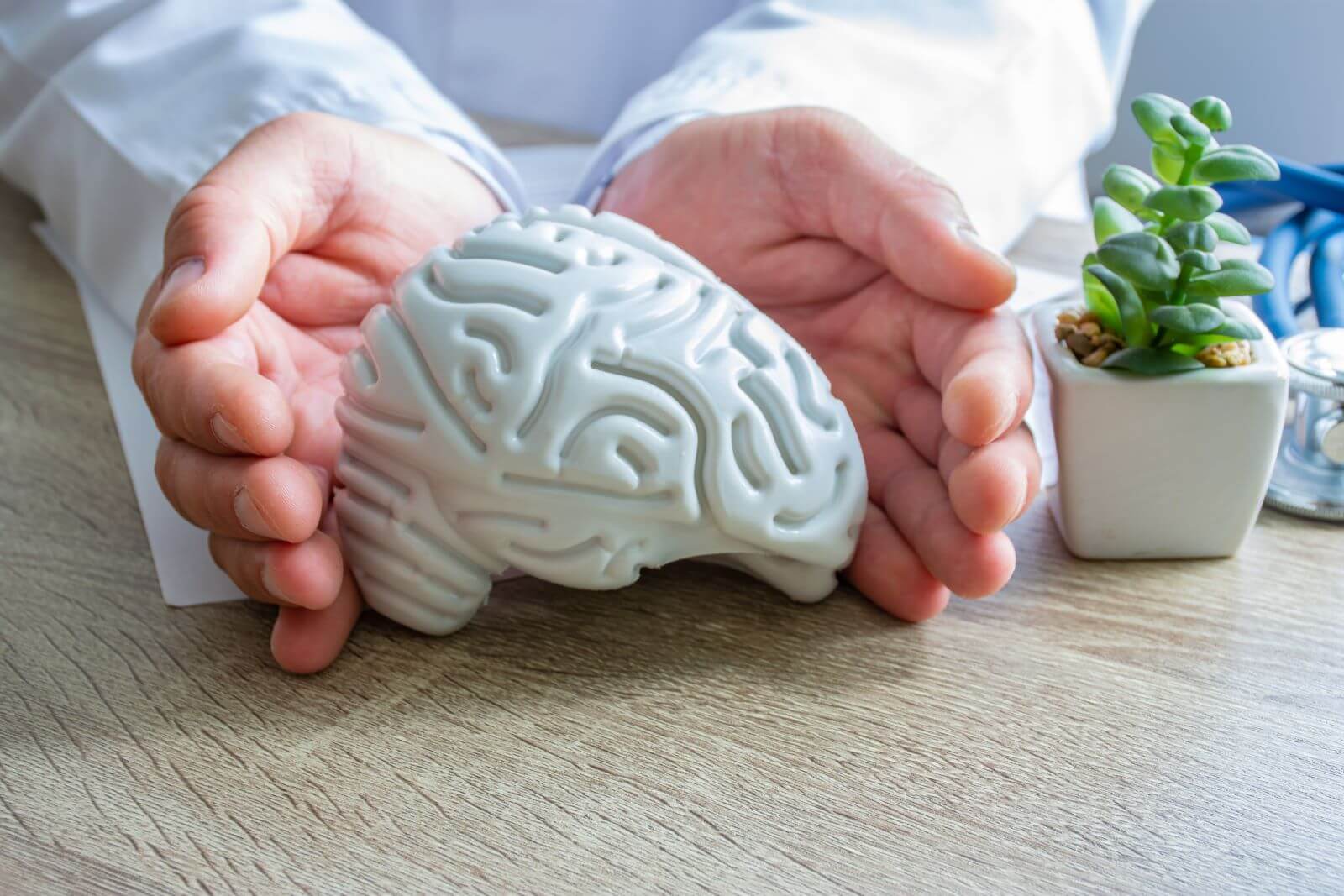(770) 410-0202
Hearing Aids and Brain Health: Why It Matters

Hearing loss can have a big effect on brain health, especially as we get older. Studies are showing a strong connection between hearing and how well the brain works. This highlights why it’s so important to deal with hearing loss early. Hearing aids are not just for improving hearing—they also help protect brain health and can prevent mental decline.
A study published by the National Institutes of Health (NIH) in August 2023 supports this idea. The research found that hearing aids can slow down mental decline in people who are at high risk for problems like dementia. By providing important sound input, hearing aids help the brain stay sharp, which might otherwise weaken if hearing loss is not treated.
What is the Link Between Hearing Loss and Brain Health?
When hearing loss happens, the brain has to work much harder to make sense of sounds. Instead of easily understanding speech and everyday noises, the brain has to use extra energy to figure out what’s being heard. This extra effort can cause mental fatigue and make it harder to focus.
Untreated hearing loss has also been linked to problems like memory loss and even dementia. Studies show that people with untreated hearing loss are at a higher risk of developing conditions such as Alzheimer’s disease. Although scientists are still studying the exact reasons for this, there are a few main ideas that explain the connection:
- Less brain activity: When hearing loss isn’t treated, the parts of the brain that process sound get less stimulation. Over time, this lack of use can cause those parts of the brain to weaken or shrink, which affects overall brain function.
- Social isolation: Hearing problems can make social situations difficult, causing people to withdraw from conversations and gatherings. Missing out on social interaction can reduce mental sharpness and lead to loneliness, which is also linked to cognitive decline.
- Extra brain work: As mentioned before, when the brain is working too hard to understand sounds, it has less energy for other important tasks like memory and thinking.
The good news is that hearing aids can help lessen or even reverse these effects by giving the brain the sound input it needs to work properly.
How Hearing Aids Help Your Brain
Hearing aids don’t just improve your ability to hear—they also benefit your brain in several ways. Here’s how:
- Restoring Sound to the Brain: Hearing aids give the brain the sound it needs to stay active. They improve sound quality, making it easier for the brain to process noise without working too hard. This helps keep the brain engaged and reduces the risk of mental decline. A recent study from the NIH found that people who use hearing aids experience slower memory loss than those who don’t treat their hearing loss.
- Reducing Mental Tiredness: When the brain doesn’t have to struggle to understand sounds, it uses less energy. This reduces mental tiredness and helps improve focus, memory, and thinking.
- Encouraging Social Connections: Hearing aids make it easier to participate in conversations and social activities. This helps keep people connected, which is important for brain health and staying mentally sharp.
- Preventing Cognitive Decline: By making it easier for the brain to hear, hearing aids can help protect against memory problems like dementia. Treating hearing loss early can slow down mental decline, especially for those at risk.
Hearing aids play a big role in keeping both your hearing and brain in good shape, especially when used early.
Modern Technology in Hearing Aids for Better Brain Health
Not all hearing aids are the same, and choosing the right pair is important to get the best benefits for your brain. Today’s hearing aids come with advanced features to improve sound quality and make listening easier in different places. Here are some important features to look for:
- Noise Reduction: This helps block out background noise, making it easier to focus on conversations and reducing the mental effort needed to understand speech.
- Directional Microphones: These make sounds in front of you louder while reducing noise from other directions, which improves speech clarity in noisy environments.
- Bluetooth Connectivity: Many hearing aids can connect to smartphones and other devices, allowing you to stream phone calls, music, and more directly to your hearing aids. This improves sound quality and makes communication easier.
- Automatic Adjustments: Some hearing aids can automatically change volume and settings based on your surroundings. This makes listening smoother and less stressful since you don’t have to adjust them yourself.
Your audiologist will help you choose the best hearing aids based on your needs and lifestyle, making sure you get the most out of them for both your hearing and brain health.


